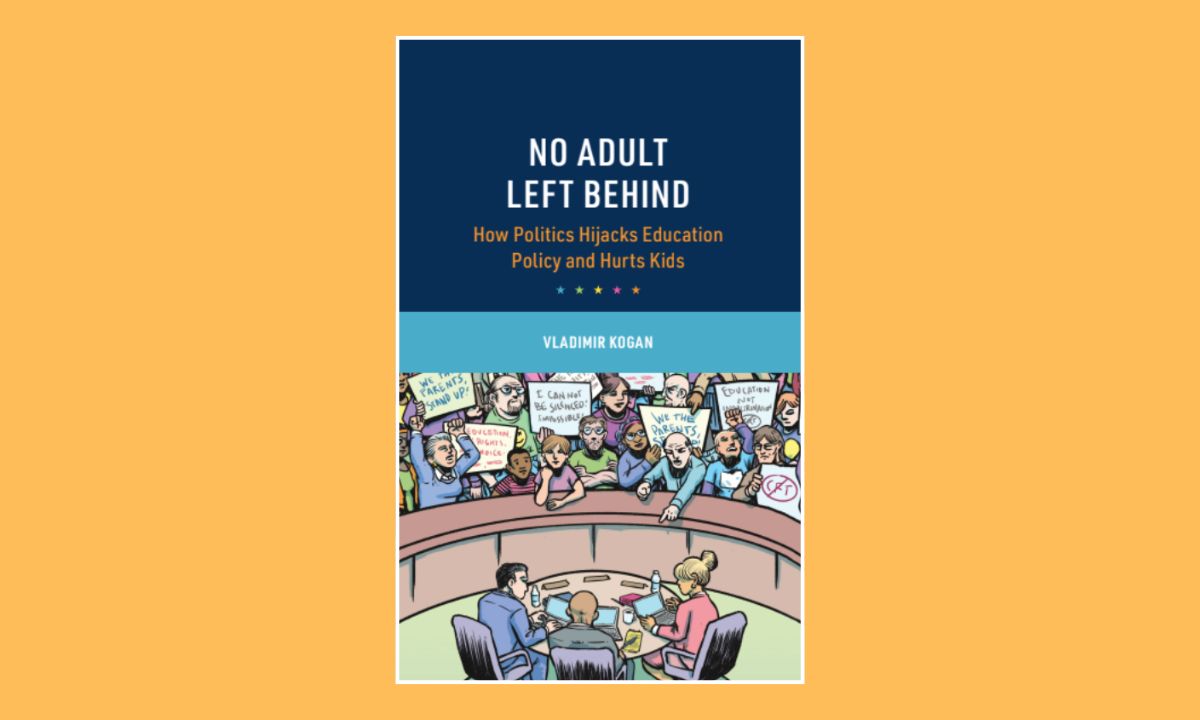How Trump’s Power Push Echoes Resistance to Fixing Education’s Deepest Problems
Kogan: Schools' dysfunction is hard-wired into a governance model that puts adults' political agendas ahead of students' educational interests.

Get stories like this delivered straight to your inbox. Sign up for The 74 Newsletter
Since January’s inauguration, two trends have characterized education policy during the second Trump administration.
One is the overwhelming flood of unilateral, executive action. This has included the haphazard dismantling of the federal Department of Education, on-and-off-again suspensions of various education-related spending — from research grants and leftover COVID dollars to afterschool and summer programs — and aggressive use of civil rights laws to target diversity, equity and inclusion programs and transgender athletes.
The other is the persistence of pandemic learning loss and the absence of political interest or will to do anything about it. The latest data from the National Assessment of Educational Progress, released less than two weeks after Inauguration Day, showed only modest improvements in math scores and continued declines in reading achievement, to the lowest rates recorded on this series of exams. Similar trends have been confirmed by private assessment vendors.
What if these two developments are related?
This suggestion is at the core of the argument I make in my new book, No Adult Left Behind: How Politics Hijacks Education Policy and Hurts Kids. The same electoral processes that gave the nation President Donald Trump — and the same democratic justifications his administration now offers to defend his norm-shattering actions — represent some of the biggest impediments to solving today’s most pressing educational challenges.
First, consider the intellectual and philosophical similarities. Trump’s aggressive approach to presidential power is based on the unitary executive theory, a controversial scholarly thesis that escaped from the legal academy into the real world. It views a strong presidency as a democratic antidote to unaccountable, deep-state bureaucrats and “elites,” and condemns any effort to block or undermine executive authority by unelected officials as inherently illegitimate.
The downplaying or outright dismissal of learning loss also has roots in once-fringe academic ideas — accounts that dismiss standardized testing as outgrowth of toxic “neoliberalism.” These scholarly treatises feature their own mustache-twirling villains — corporate reformers and billionaire philanthropists, a different kind of elite — and demand a restoration of truly democratic control of public education.
When federal courts stepped in to block some of the Trump administration’s executive actions, the White House slammed “unelected judges” and Vice President J.D. Vance asserted that their intervention represented “an effort by the courts to quite literally overturn the will of the American people.”
Defenders of chronically underperforming schools have lodged nearly identical complaints against efforts to fix them.
After Louisiana officials took over the undeniably corrupt and woefully run New Orleans school district in the wake of Hurricane Katrina and turned almost all of it over to charter schools, academic achievement and attainment improved dramatically. For years, however, critics attacked the new system as “undemocratic.”
More recently, Houston’s state-appointed superintendent has produced a remarkable academic turnaround less than two years after sidelining the district’s elected school board. As one local journalist recently summarized: “The news from the Houston Independent School District at the end of the 2025 school year is wonderful for Houston, wonderful for Texas and wonderful for the nation.”
Rather than celebrate these improvements, however, opponents continue to demand “resistance” to the “undemocratic seizure of Houston’s public schools” and warn that “these kinds of undemocratic seizures of power aren’t just a Houston problem — they’re a threat to every public school.”
Last November, the Houston teachers union helped persuade city voters to reject the school district’s $4.4 billion bond proposal — not because union leaders disagreed about the need to upgrade aging school buildings, but because they insisted that any investments must be delayed until “we have steady, trusted and accountable elected leaders running the district once more.”
Fortunately, many Americans appear to reject the Trump administration position that presidential power is unlimited and any intervention to rein it in illegitimate — polling suggests that public approval of his performance is underwater almost across the board. Voters seem to understand that there is much more to democracy than mere elections and that electoral control can be a double-edged sword. That unelected judges with lifetime appointments (and independent central banks) play an essential role, too, in providing restraint against the popular passions of the moment. And that groups without the right to vote, whether non-citizen immigrants or underage children, require special protections, because their interests are especially likely to be overlooked in the political process.
Similar dynamics apply at the local level. They help explain why much of the dysfunction that plagues schools is hard-wired into a governance model that puts the short-term political agendas of adults ahead of the educational interests of students that local schools serve. The argument that responsiveness to voters is the only outcome that matters and any intervention limiting the authority of elected officials is undemocratic did not begin during the Trump administration — and similar claims have long been used to insulate chronically underperforming school systems from meaningful accountability and reform.
In 1997, political commentator Fareed Zakaria published a widely read article in Foreign Affairs warning about the rise of what he called “illiberal democracy.” Too many, he warned, made the mistake of equating “democracy” with elections. But democracy is much more than that, he argued. It is “a political system marked not only by free and fair elections, but also by the rule of law, a separation of powers and the protection of basic liberties of speech, assembly, religion and property.”
At the time, he was focused mostly on newly democratizing countries in the developing world, but the distinction seems equally relevant in America today.
Zakaria’s insight is also relevant for understanding the problem with education governance. If “illiberal democracy” is characterized by fetishizing electoral procedures at the expense of substantive performance, and if it prioritizes popular participation and (adult) majority rule over minority (and student) interests, public education has long had an illiberal democracy problem. And America’s schoolchildren have paid the price.
Get stories like these delivered straight to your inbox. Sign up for The 74 Newsletter

;)
